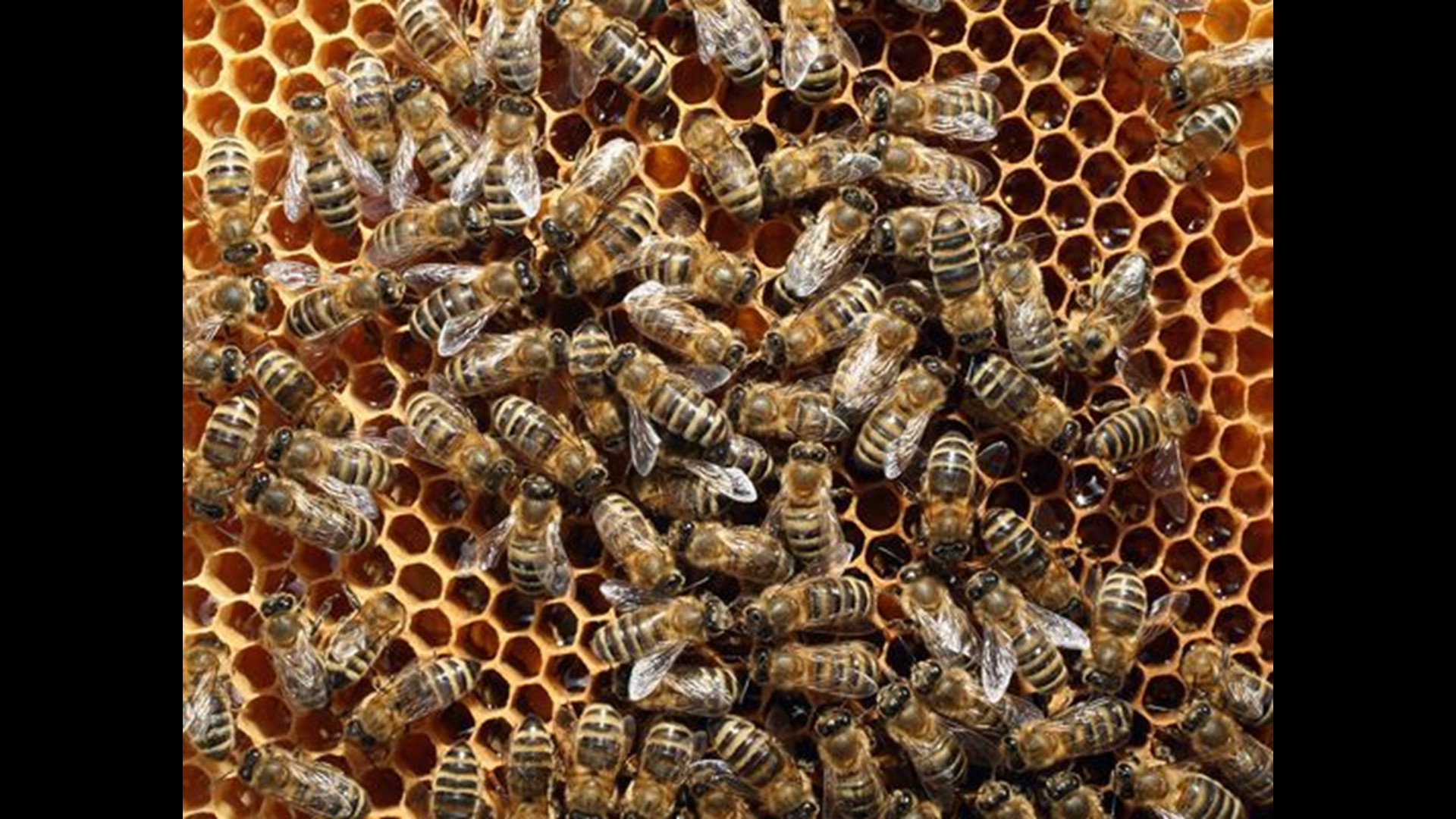AMES, Iowa — Soybeans can pollinate themselves, but a new study from Iowa State University has found wild bees and honeybees can do a better job pollinating than the plants can do on their own.
Lisa Schulte Moore, a professor of natural resource ecology at ISU, said to understand how the research works you must understand basic biology.
Honeybees gather pollen and help pollination. She said it's the same for soybeans.
“And that can result in two things. One, there ends up being more pods on the soybean plant," said Schulte Moore. "And because of [those] pollinations, there’s also more soybeans per pods. Which can result in yield gains for farmers.”
The experiment placed soybeans near prairie fields. Schulte Moore said the study saw dramatic impacts in terms of environmental benefits, while not showing much impact on crop reduction.
The study showed farmers can keep 95% more soil in the field, reduce the amount of phosphorus by 77%, keep 70% of nitrogen, and triple the number of pollinators.
“We get all of these environmental benefits that are important to farmers as well as all of society," she said.
Schulte Moore has been conducting this research since 2007.
The study is based on 16 previous studies across the globe. So far, research has found bees can improve soybean yields by upward of 20%.

